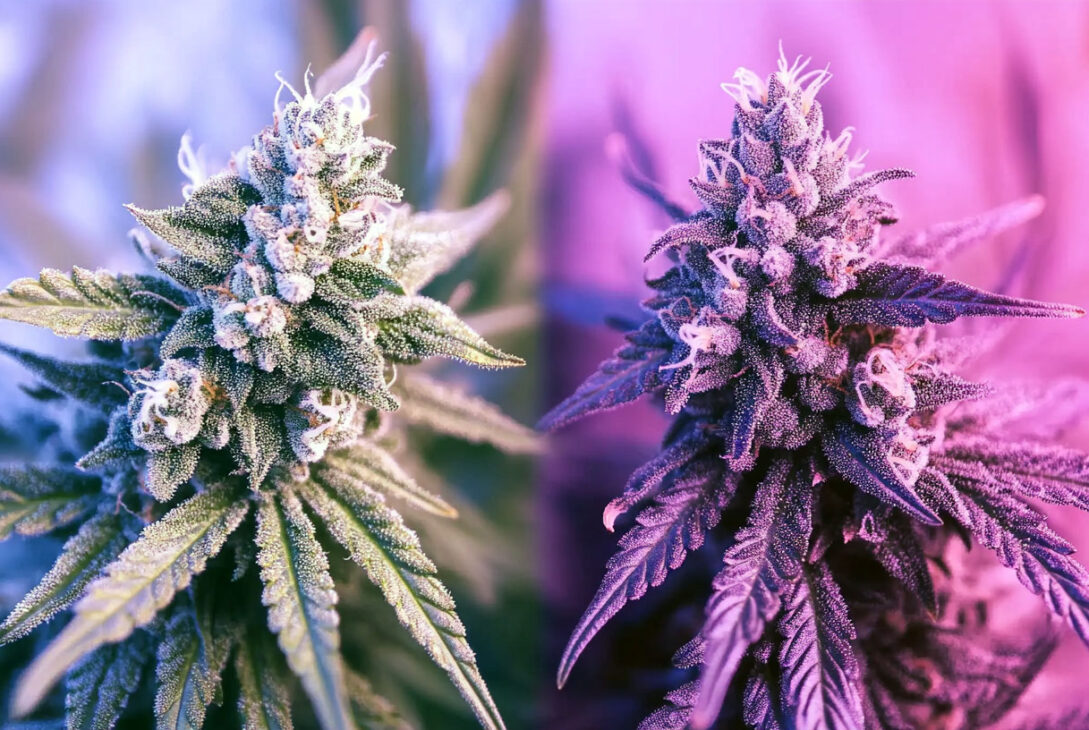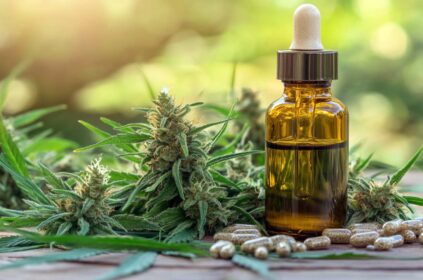Introduction to CBD and Delta-9 THC: A Comparative Analysis
In the ever-evolving world of hemp-derived products, two cannabinoids have taken center stage: Cannabidiol (CBD) and Delta-9 Tetrahydrocannabinol (Delta-9 THC). Each compound offers distinct therapeutic potential, attracting attention for their different effects and uses. As you navigate this landscape, this guide aims to provide you with a clear understanding of these cannabinoids, their efficacy, and applications. Let’s embark on this journey together to make informed choices about your wellness.
What is CBD?
CBD is a non-psychoactive compound found in the Cannabis sativa plant. Unlike its more famous cousin, Delta-9 THC, CBD doesn’t produce a “high,” allowing users to experience its benefits without intoxication. CBD interacts primarily with the body’s endocannabinoid system, a complex network that plays a crucial role in maintaining homeostasis—essentially keeping our systems balanced.
This compound has gained popularity for its potential therapeutic effects, which may include alleviating anxiety, reducing chronic pain, and promoting better sleep quality. Research continues to highlight its efficacy, making it a go-to option for many.
Efficacy of CBD
- Anxiety and Stress Relief: Research indicates that CBD can significantly reduce symptoms of anxiety by influencing brain receptors responsible for fear and mood regulation. For instance, a study demonstrated a marked reduction in anxiety levels in subjects preparing for public speaking after taking CBD.
- Pain Relief: CBD’s analgesic properties have been increasingly recognized. Many users report relief from chronic pain conditions such as arthritis and multiple sclerosis without the psychoactive effects associated with THC.
- Sleep Improvement: Many individuals turn to CBD to improve their sleep quality. By reducing anxiety and promoting a sense of calm, CBD allows users to fall asleep more easily and stay asleep longer.
- Neuroprotective Effects: Emerging studies suggest that CBD might have neuroprotective benefits, which could be significant for conditions like epilepsy and neurodegenerative diseases. While research is still in the early stages, the potential is promising.
What is Delta-9 THC?
Delta-9 THC is the primary psychoactive compound in the Cannabis sativa plant, responsible for the sensation of being “high.” Produced by heating the precursor molecule THCa, Delta-9 THC becomes active, working by binding to the body’s CB1 receptors in the brain. This interaction produces a range of effects from euphoria to increased appetite, making it a favorite among cannabis consumers.
Efficacy of Delta-9 THC
- Pain Relief: Known for its powerful analgesic effects, Delta-9 THC can provide significant relief from pain, making it particularly useful for chronic pain sufferers.
- Relaxation and Euphoria: Many users seek THC for its ability to induce relaxation and elevate mood. This can be particularly beneficial in reducing stress and enhancing overall well-being.
- Appetite Stimulation: Commonly referred to as “the munchies,” Delta-9 THC is effective at increasing appetite, making it a viable option for patients undergoing treatments that suppress hunger.
- Sleep Aid: Low doses can promote sleep onset; however, higher doses might disrupt sleep patterns. It’s crucial to find the right balance for your needs.
Comparison of CBD and Delta-9 THC
Therapeutic Benefits
When we explore the therapeutic landscapes of CBD and Delta-9 THC, the distinctions become clearer:
- Anxiety: CBD consistently demonstrates anxiety-reducing effects, whereas Delta-9 THC may increase anxiety in some users, especially at higher doses. Interestingly, CBD may counteract these anxiety-inducing effects of THC when taken together.
- Pain Relief: Both cannabinoids are recognized for their pain-relieving qualities. However, Delta-9 THC generally offers more potent analgesic effects, while CBD serves as a gentler option, suitable for those adverse to psychoactive experiences.
- Sleep: CBD aids sleep through relaxation and reduced anxiety levels, while Delta-9 THC can help induce sleep, albeit with the risk of sleep disruption at higher doses.
Side Effects
Navigating the side effects of each compound is crucial for an informed decision:
- Psychoactive Effects: Delta-9 THC is known for its psychoactive effects, which can include changes in perception, anxiety, rapid heart rate, and paranoia. Conversely, CBD remains non-psychoactive and is generally better tolerated by users.
- Metabolic Interactions: High doses of CBD can inhibit the metabolism of Delta-9 THC, potentially intensifying its effects and leading to unwanted side effects like cognitive impairment.
Legal and Availability Considerations
- Legal Status: The legal landscape is complex. Delta-9 THC derived from cannabis remains federally illegal in the U.S., but hemp-derived Delta-9 THC can be legal if it contains less than 0.3% THC. In contrast, CBD is widely available and legal as long as it follows similar hemp guidelines.
Therapeutic Applications and Considerations
Choosing Between CBD and Delta-9 THC
When considering whether to use CBD or Delta-9 THC, keep several factors in mind:
- Consult a Doctor: Prioritize consulting with a healthcare provider, especially if you have underlying health conditions or are taking other medications. Personalized advice is invaluable for safe consumption.
- Personal Preferences: For those seeking a non-psychoactive product, CBD is an excellent choice for therapeutic relief. On the other hand, if you desire a robust psychoactive experience, Delta-9 THC may be more appealing, though it carries a risk of side effects that should not be overlooked.
Dosage and Administration
- Start Low: Whether it’s CBD or Delta-9 THC, starting with lower doses is advisable and gradually increasing as necessary can help you find your ideal level without unpleasant side effects.
Synergistic Effects
The combination of CBD and Delta-9 THC can produce complementary therapeutic effects. When taken together, CBD may help buffer the psychoactive impact of THC, resulting in a more balanced experience. Many users find that this combination enhances their overall therapeutic outcomes.
Conclusion
As we conclude this comparison of CBD and Delta-9 THC, it becomes clear that both cannabinoids offer unique advantages worth considering in your wellness journey. CBD provides a non-psychoactive option that can ease anxiety, improve sleep, and offer pain relief. Meanwhile, Delta-9 THC presents potent therapeutic potential but requires cautious use due to its psychoactive properties.
Key Takeaways
- CBD:
- Non-psychoactive
- Effective for anxiety and sleep issues
- Generally well-tolerated and legal in many areas
- Delta-9 THC:
- Psychoactive and potent for pain relief
- Can stimulate appetite and potentially improve sleep
- Requires careful consideration of dosage and effects
Understanding these compounds empowers you to make informed decisions that align with your health needs and personal preferences. As always, keep communication with your healthcare provider open, ensuring a safe and positive experience with hemp-derived products.





















